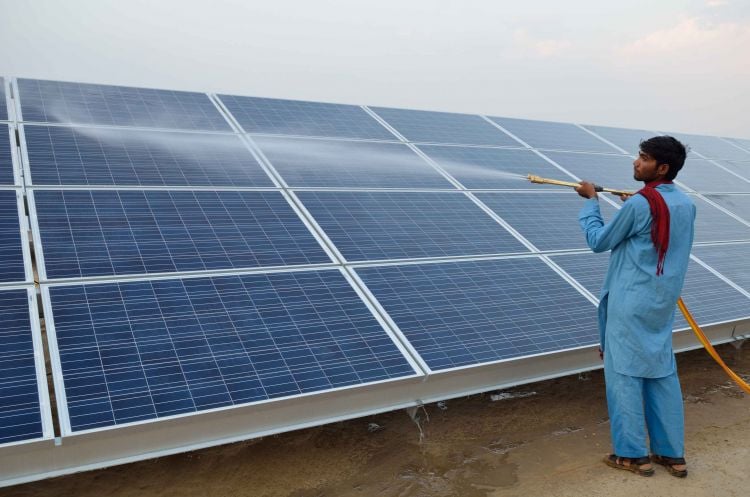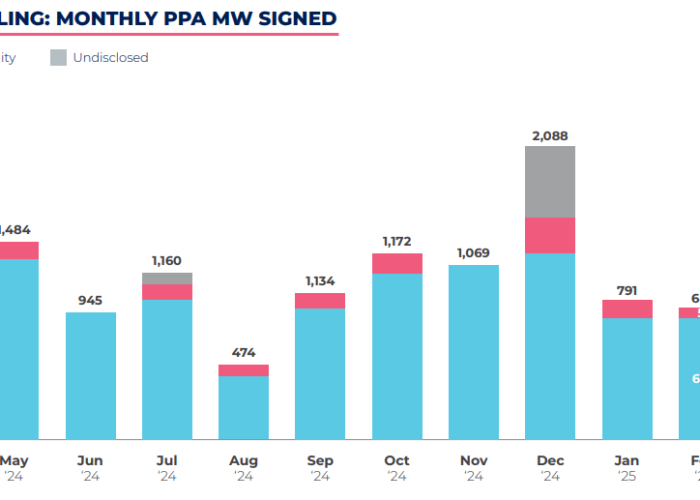
SJVN Green Energy, the subsidiary of Indian state-owned utility SJVN, has signed offtake agreements for 600MW of solar PV capacity with Rajasthan Urja Vikas and IT Services Limited (RUVITL).
The capacity is contracted under two 25-year agreements – one for 500MW of capacity from SJVN’s 1GW Bikaner solar project in the state of Rajasthan, under what the utility called a “power usage agreement (PUA)”, and a further 100MW from the same project under a power purchase agreement (PPA).
Unlock unlimited access for 12 whole months of distinctive global analysis
Photovoltaics International is now included.
- Regular insight and analysis of the industry’s biggest developments
- In-depth interviews with the industry’s leading figures
- Unlimited digital access to the PV Tech Power journal catalogue
- Unlimited digital access to the Photovoltaics International journal catalogue
- Access to more than 1,000 technical papers
- Discounts on Solar Media’s portfolio of events, in-person and virtual
Or continue reading this article for free
SJVN began construction on the Bikaner project in January 2023, with operations expected by the end of September 2024. Bikaner is being developed under the Indian Ministry of New and Renewable Energy’s Central Public Sector Undertaking (CPSU) scheme, a vehicle for providing financial support to grid-scale solar PV projects using domestically made solar modules and cells. Once completed, SJVN said it would be the “largest single location” PV installation in the country.
The 500MW PUA was signed at a tariff of INR2.57 (US$0.031) per kWh and the 100MW PPA was signed off at INR2.62 (US$0.032) per kWh.
Rajasthan continues to be a hotbed for solar PV, despite utility-scale deployments suffering in India over the last year. The state installed the most capacity of any in 2023 by almost 1GW, according to analyst firm Bridge to India, though a lack of government-issued tenders between 2020-22 led to a 28% year-on-year decline in utility-scale deployments nationwide.
Under the CPSU scheme, the Bikaner project will be built with modules produced in India, but in February 2023 the government announced a relaxation of its Approved List of Models and Manufacturers (ALMM) policy to attempt to increase solar deployments. The ALMM designates a list of solar products and manufacturers that are allowed access to the Indian market, and has played a part in the module procurement issues and ensuing deployment shortfalls plaguing India over the last two years.
Last month SJVN issued a tender seeking around 2GWp of PV module supply for a number of its projects across India.







